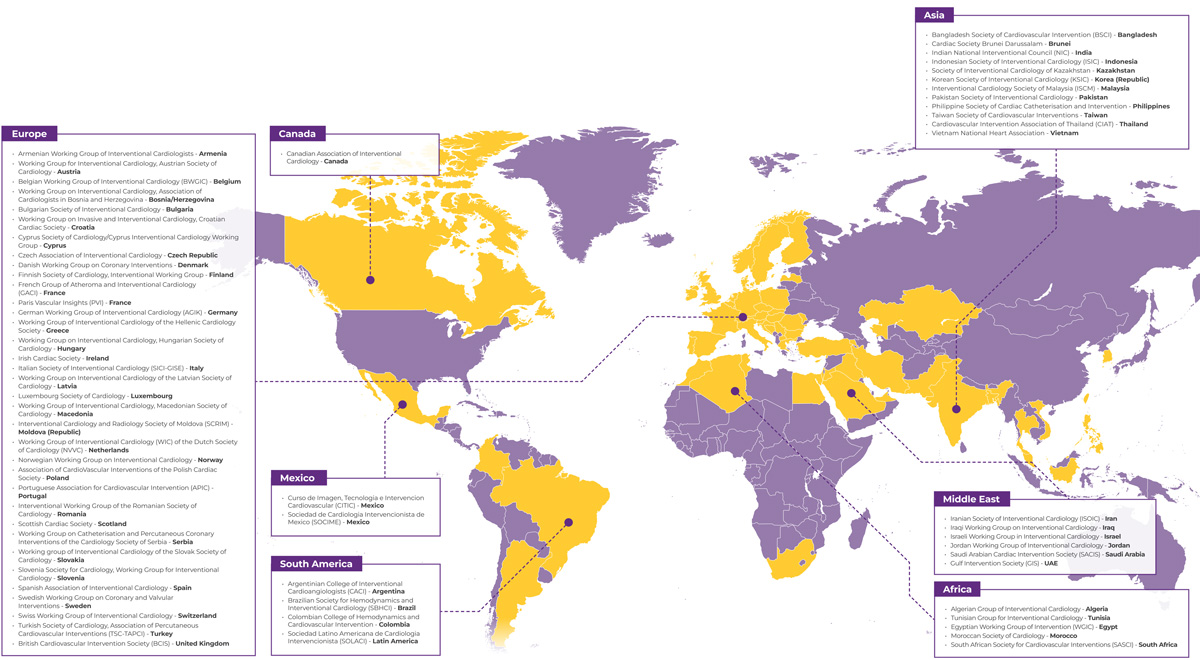16 May 2023
Focus on international collaboration with National Societies and Working Groups
As always, National Societies and Working Groups are at the heart of EuroPCR. Joint sessions greatly enrich the programme, providing the opportunity for participants to compare and discuss local treatment methods for a more global view of practice in different regions around the world.

For EuroPCR’s new Course Directors it’s a two-way street – they are delighted to have contributions from so many different National Societies and Working Groups, and they also want to learn how best to support them.
EuroPCR 2023 Course Director
We really want to see the PCR community as a network of worldwide companions. And we need to share and to learn together to improve daily practice as this will translate into the optimisation of patient outcomes. Although it’s called ‘EuroPCR,’ it is anything but a European Course – it really is an international event and that is its beauty. It can be even more interesting to discuss practices with people working in different places than with, let’s say, partners from your centre, because it’s only then you realise that sometimes people have different ideas working in different set-ups. In the future, I see the collaboration with National Societies growing, meaning that National Societies are not just invited to join, they take an even greater role in the Course. And on the other hand, I think all EuroPCR activities can help National Societies with medical education in their respective countries. It’s really a win-win strategy between National Societies and not only EuroPCR, but PCR at large.
EuroPCR 2023 Course Director
From the beginning, the EuroPCR Course has been built by and for its participants. This means that at least half of the programme, or even more, is built from the contribution of its participants. And in that spirit, having structured participation coming from the National Societies is crucial. It allows us to offer them a free space for their communication with other National Societies and also provides the scope to build sessions around topics that particularly interest them. In addition, it enables the National Societies to encourage younger colleagues to present for the first time at an international meeting and we see new talent introduced into our community.
It’s all about partnership – they are our companions; they are the basis of the community and they have this free opportunity to be a part of the programme. Joint international sessions have always been, and will always be, part of the DNA of the Course.
EuroPCR 2023 Course Director
Collaboration with National Societies and Working Groups is key for EuroPCR. Indeed, facilitating sharing among the cardiovascular community is in the mission of PCR. International connections provide opportunities to understand the challenges colleagues face in different environments and we can learn more about regional differences in the approach to certain conditions Last but definitely not least, these collaborations help us share ways to provide impactful education – education that is specially adapted to the needs of each community.
Ideally, we would like to extend these collaborations beyond the Course itself. To this end, we would like to find new ways to help interactions between societies and EuroPCR to be able to provide more dedicated learning.





